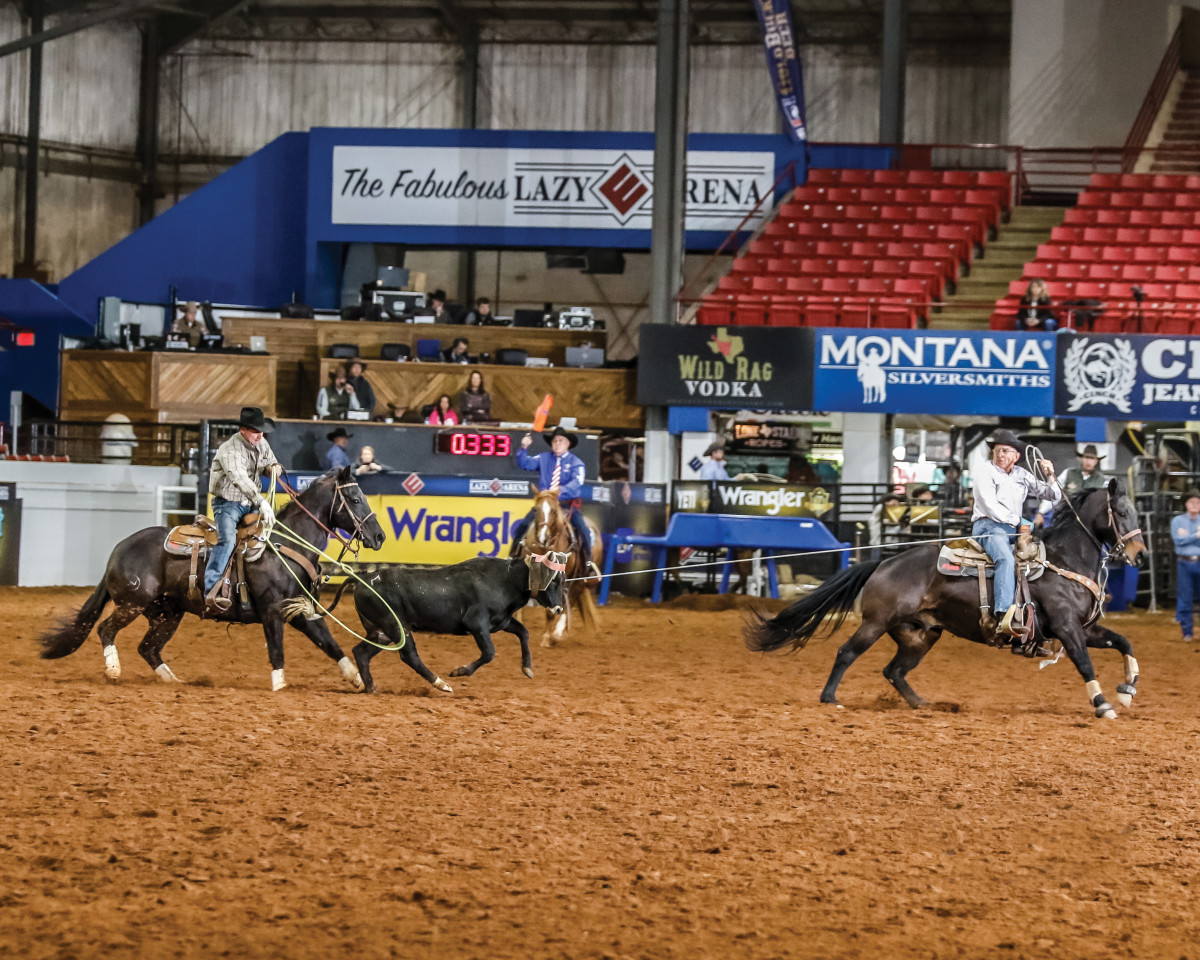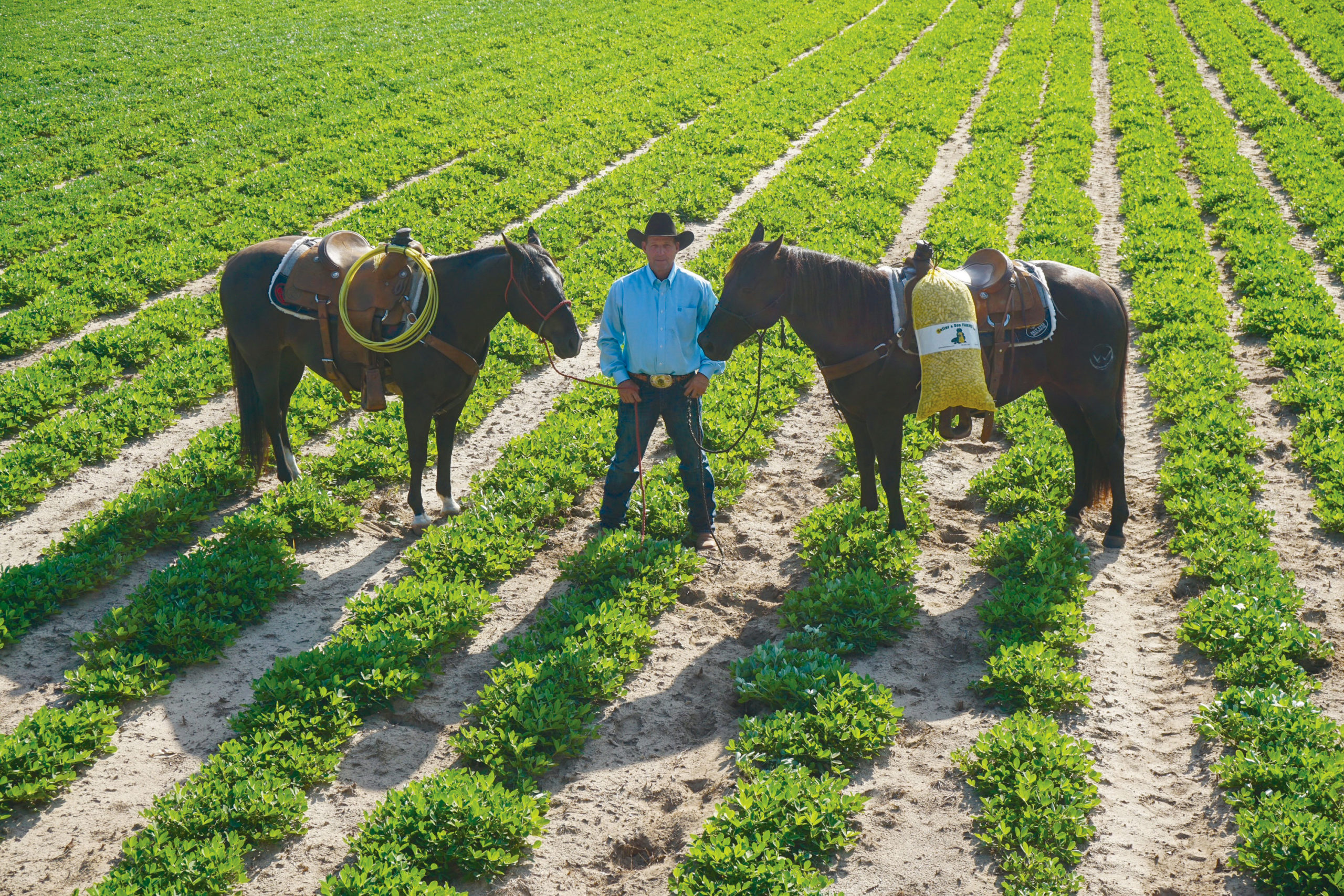In March, Scott Seiler was in Guthrie, Oklahoma, pulling in pretty check when he heeled four in 44.46 seconds behind Darwin McGowan for a team total of $70,000—the best payout Seiler has ever earned in the roping arena.
Outside the arena, Seiler, who turns 59 this month, earns his keep farming peanuts—a venture that has a long history in his family. In the 1930s, Seiler’s great-grandfather began a Florida peanut operation that has grown into the current 1,000-acre, Ocala-based Seiler Farms.
“We do have a cow-calf operation, too, that me and my nephew run together,” Seiler explained. “But the peanuts are the main thing.”
Seiler Farms specializes predominantly in Valencia peanuts—a variety that’s grown around Portales, New Mexico, due to its short growing season. Because Florida features a much friendlier growing season, it means that Seiler can produce two crops each year.
“The market’s not very good for the peanut butter and candy peanuts, so we grow the type that you boil. In the Southeast, it’s a really healthy market. They go to South Carolina, Georgia, Alabama.

Courtesy BFI/Performance Horse Photography
“Come to find out,” Seiler continued, “Kevin Daniels—he lives down the road from us here—he’s been to the NFR a couple times. He’s a header and his wife is Kristen. She told me the other day that Shari Cooper, which I guess is Tuf’s mama, told Kristen that she wanted me to send her some peanuts out there because she can’t get any in Texas.”
Seiler does also grow Virginia peanuts, but his customers are fans of the Valencias.
“You can boil both kinds, but this particular kind that’s grown in Portales, they taste a lot sweeter and a lot of people have become accustomed to them because we’ve grown them so long.”
Of course, operating multiple harvests in a year doesn’t leave a lot of room for roping, but there is a decent off-season in which Seiler gets to play.
“During the summer, I don’t get to rope much at all. It’s starts in April. When we left Oklahoma, we came straight home and went to work. It was a great last hurrah—until Vegas or Wickenburg.
“We usually get done around October and get everything cleaned up and put up and we start practicing a little bit and me and my wife, Sharon, take off and go to Wickenburg and we stay a couple weeks, then go on to Vegas and come back.”
When the couple met, Sharon was high school rodeoing, but the whole deal was new to Seiler.
“My dad never rode a horse, my grandad never rode a horse, and I didn’t ride a horse until I met my wife. I was almost out of high school. I’ve been on a bull or two and two saddle bronc horses and it didn’t take me long to figure out that that wasn’t my game,” Seiler admitted, laughing.
Then it was their son Andy’s turn to high school rodeo and the two started roping together. Now an NFR announcer, Andy was crowned the 2004 National High School Finals Rodeo Champion Header in Gilette, Wyoming, and now, Seiler—a grandfather to six—is looking forward to traveling and roping more.
“My goal is to hopefully slow down and get some guys to take over in the summer and I can go to Montana and out that way and rope some out there. I’d love to go out there. I’ve roped at Reno. But there’s some other places I’d like to go: Jackson Hole and some other places like that, too.”






